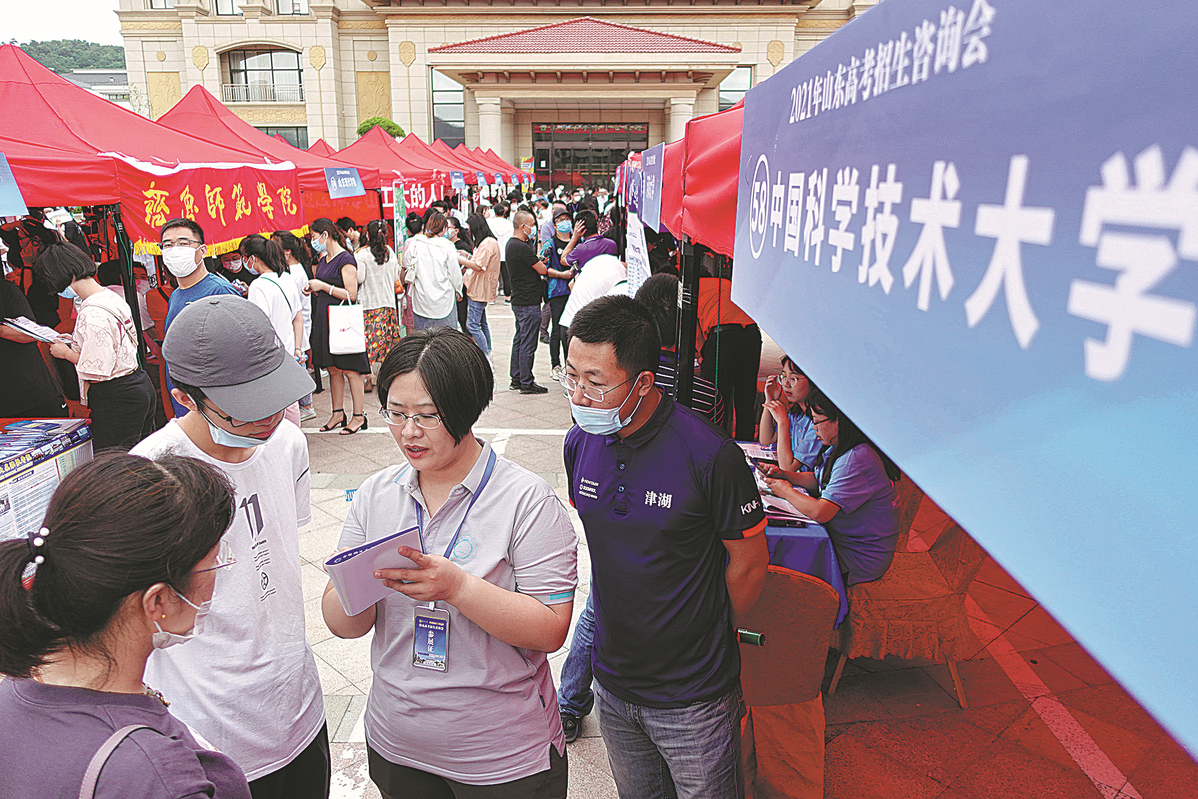Cities set their sights on best talent


Changes on way
Metropolises such as Beijing, Shanghai and Guangzhou, capital of Guangdong, have announced population control targets since 2016 to deal with big-city problems and pursue sustainable development.
Beijing aimed to cap its permanent residential population less than 23 million by last year, when the capital's population stood at 21.89 million, according to official data.
Facing the problem of an aging society, and chasing high-end growth, the capital is making efforts to retain talent as part of its strategy for improved expansion.
Many cities nationwide have introduced incentives to attract qualified graduates.
For example, Chengdu, Tianjin and Wuhan, capital of Hubei province, introduced policies to attract graduates, followed by Zhengzhou, capital of Henan province, Shenyang, the Liaoning provincial capital, and Xi'an, capital of Shaanxi province.
In Guangzhou and Shenzhen, graduates can obtain their hukou after leaving college, with no additional requirements. This has led to rising populations in the two cities in recent years.
Shanghai is the top competitor to Beijing. The two cities have rich educational resources and fast-growing economies, in addition to long histories and a host of cultural attractions.
In 2018, the Shanghai government announced that graduates from Tsinghua and Peking universities, which are both in Beijing, could register as Shanghai citizens directly after graduation. Last year, the policy was expanded to four universities in Shanghai.
Wu Shuai, associate researcher at the Ministry of Human Resources and Social Security's Human Resources Research Institute, said young talent is the "core competitiveness of cities".
"Cities that can attract such talent to work in the industries they are developing will have a better future," Wu said.
The relaxed hukou registration rules in large cities will have a significant impact on reforming the sector, he said.
However, Wu added that the flow of talent is affected by a number of factors, with high housing costs a major problem in cities such as Beijing and Shanghai.
"Support for talent, such as lowering housing costs, is as important as the introduction of new regulations," he said.
























